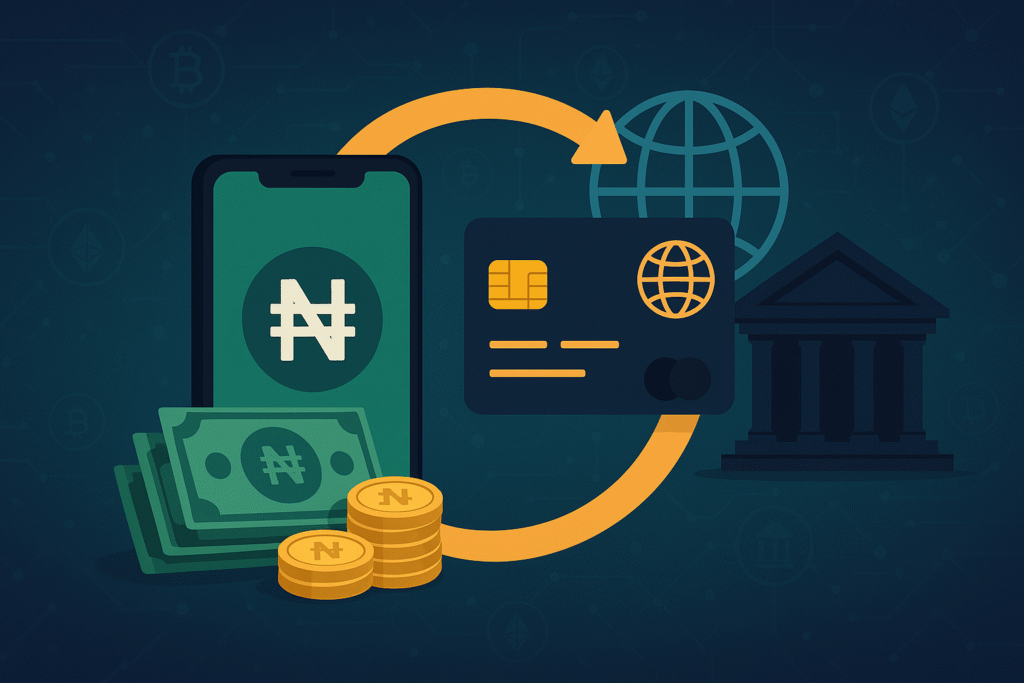Transferring money internationally from Nigeria used to feel like a gamble.
You’d worry about whether the money would arrive.
You’d stress over poor exchange rates.
And sometimes, you’d wonder if the entire process was even legal.
But in 2025, the game has changed.
If you’re a Nigerian supporting family abroad, paying international tuition, managing business expenses, or freelancing for foreign clients, you deserve better than confusion and high fees.
This blog post is your no-fluff, crystal-clear guide to transferring money internationally from Nigeria — securely, legally, and confidently.
Table of Contents
First, Understand the Rules — So You Don’t Break Them
In early 2024, the Central Bank of Nigeria (CBN) rolled out updated guidelines for international money transfers.
Here’s what you need to know:
Inbound Transfers (Money into Nigeria): All international remittances must be received in Naira, at the official market rate on the day the money arrives. No more dollar payments at the counter.
Outbound Transfers (Money leaving Nigeria): Only licensed banks and certain fintech platforms are allowed to process these.
International Money Transfer Operators (IMTOs) are now restricted to inbound transfers only.
This means if you’re sending money out of Nigeria, you must use a CBN-approved method — or risk delays, blocked transactions, or even financial penalties.
The Safest, Smartest Ways to Send Money Abroad
Let’s break down your best options — based on security, speed, convenience, and compliance.
1. Bank Wire Transfers
Best for: High-value transfers, paying foreign vendors, tuition fees
Bank-to-bank transfers are the most traditional option. Nigerian banks like GTBank, Zenith, Access, and First Bank offer wire transfer services for international payments.
Pros:
Highly secure
Globally accepted
Suitable for large amounts
Cons:
Slower (2–5 business days)
Higher fees
Exchange rates aren’t always favorable
Pro Tip: Always confirm the bank’s SWIFT code and fees upfront before initiating a transfer.
2. Wise (formerly TransferWise)
Best for: Transparent fees, real-time exchange rates
Wise has become a favorite for Nigerians in tech, business, and freelancing. It offers mid-market exchange rates (the real rate), low fees, and transfers to 80+ countries.
Pros:
Real exchange rates
Transparent, low fees
Fast delivery (hours to 1 day)
Cons:
Requires verification and documentation
Why people love it: You know exactly what you’re paying for — no hidden fees, no tricks.
3. WorldRemit & Remitly
Best for: Sending money to mobile wallets or for cash pickup
These platforms are great if you need to send money to family or friends abroad, especially in rural areas where bank accounts aren’t common.
Pros:
Easy-to-use apps
Multiple delivery options (bank deposit, cash pickup, mobile wallet)
Good customer support
Cons:
Not ideal for large transactions
Exchange rates vary
4. LemFi (formerly Lemonade Finance)
Best for: Nigerians in the diaspora sending money both ways
LemFi offers multi-currency wallets and quick transfers between Nigeria and countries like the UK, US, and Canada.
Pros:
Multi-currency support
Easy onboarding
Built for Nigerians
Cons:
Still growing its global reach
Important Safety Tips
No matter what platform you use, always stay alert. Here’s how to keep your money safe:
Use licensed providers only
If the service isn’t regulated by the CBN or international financial authorities — walk away.Double-check recipient details
One typo can delay or cancel your transfer.Use strong passwords and two-factor authentication
Especially for digital wallets and apps.Avoid “too-good-to-be-true” exchange rates
Scammers often bait victims with amazing rates that lead to empty accounts.
CONCLUSION
Transferring money from Nigeria shouldn’t feel like a mission impossible.
With the right knowledge, tools, and caution, you can send money abroad securely and stress-free. And you can do it without wasting money on bad exchange rates or falling into avoidable traps.
Whether you’re a parent supporting your child’s studies abroad, a small business owner paying international suppliers, or a freelancer collecting payments — there’s a safe, smart option for you.
Always check the latest CBN guidelines or consult your bank before making large international transfers. Policies can change — and staying informed is your best defense.


